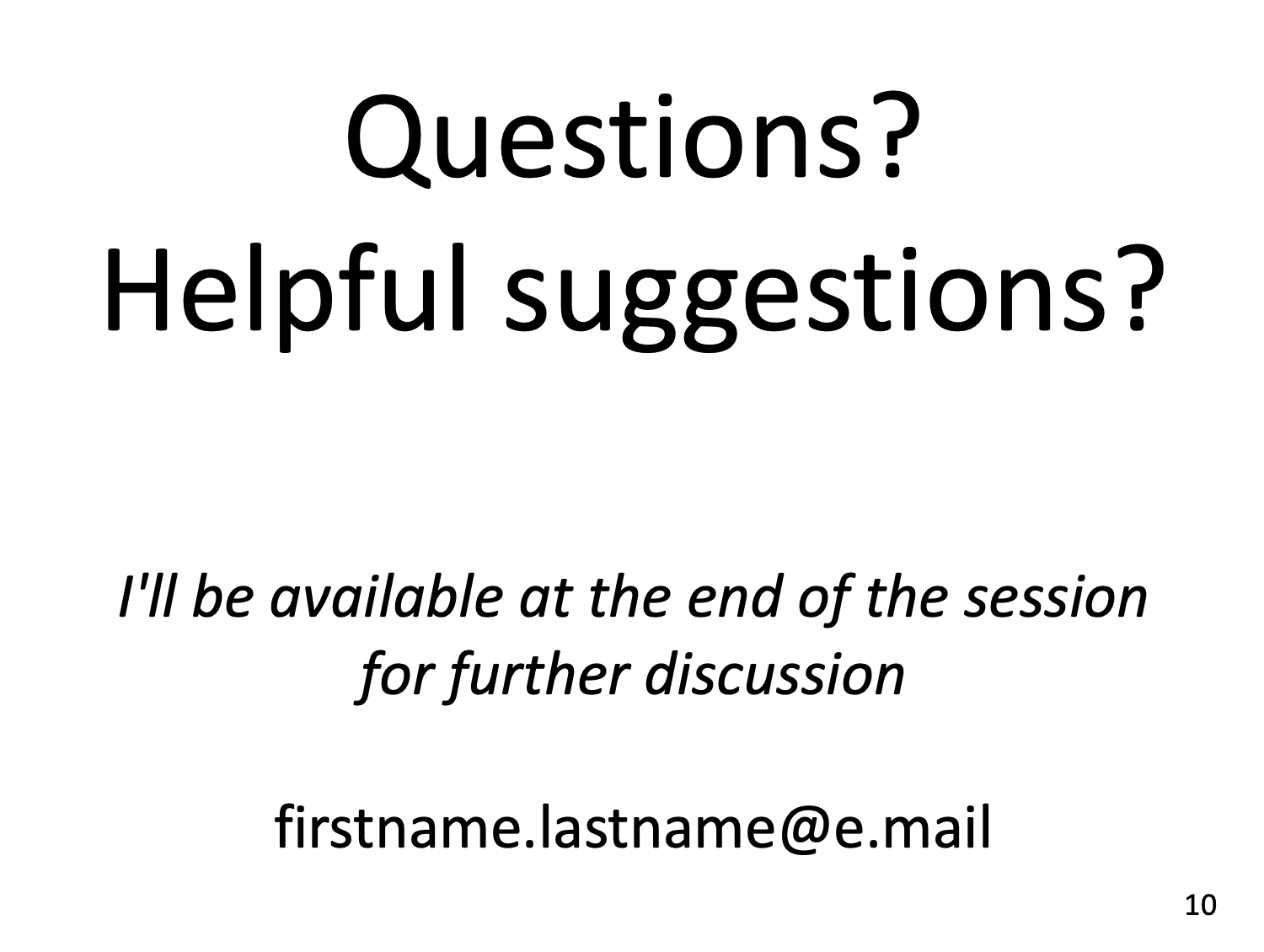I am currently in the second semester of my Master's and will be graduating in about a year. I submitted an abstract a few months ago for a conference in my field, and recently found out it has been accepted for an Oral Presentation session. I am new to my field (I did not major in it in undergrad) and have only attended one conference in my first semester.
This other conference, which I have never attended, is in about two and a half months and while I am excited and happy to be presenting, I am terrified. My research is not at the point I want it to be and while I will do my best to work on it as much as I can until the conference, I am worried that my presentation will not be fleshed out enough to be of interest. My PI asked me to submit the abstract so I know they are expecting me to present and work hard until the deadline, which I will do.
I was hoping to use this as a jumping off point and get a lot of good feedback from experts in this field, as this work is going to be my Master's thesis. But I am not sure what the norm or etiquette is for oral presentations. Is it common for Master's students to have oral presentations at conferences? Should I talk to the session head about my research progress? Also, do you have any advice for presenting an in-progress project with limited results? Thank you in advance, just hoping some fellow academics can offer some words of encouragement.

